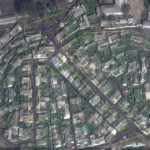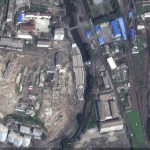Andrei Lankov provides some anecdotal evidence and a taxonomy of the DPRK’s growing entrepreneurial class (perhaps one of the most interesting and least reported aspects of the DPRK). He also gives us a glimpse of how the North Korean version of the “infant industry” mindset can impede economic reform.
Here is a great blurb from the article in the Asia Times:
Who are they – the North Korean new rich? The upper crust of this social group consists of high-level officials. Some of them have gained their wealth through illegal means, but many have seen their business activities permitted and even actively encouraged by the government. Most of the money is made in foreign trade, with China being by the far the most significant partner.
Many North Korean companies, despite being technically owned by the state, are effectively private and are run by top officials and their relatives.
That said, these people are not that frequently seen on the streets of Pyongyang. They live in their own enclosed world, of which not much is known.
But if we go one or two steps down, we will encounter a very different type of North Korean entrepreneur – somebody who has made his or her (yes, surprising many of them are women) money more or less independent of the state.
Complete independence is not possible because every North Korean businessman has to pay officials just to make sure that they will not ask too many questions and turn a blind eye to activities that are still technically illegal. In many cases, North Korean entrepreneurs prefer to disguise their private operations under the cover of some state agency.
Take for example Pak. In his early 40s, he runs a truck company together with a few friends. The company has seven trucks and largely specializes in moving salt from salt ponds on the seacoast to major wholesale markets. The company employs a couple of dozen people, but officially it does not exist. On paper, all trucks are owned by state agencies and Pak’s employees are also officially registered as workers of state enterprises.
Pak bought used trucks in China, paying the Chinese owners with cash. He then took them to North Korea where he had the vehicles registered with various government agencies (army units are the best choice since military number plates give important advantages). Pak paid officials for their agreement to “adopt” the trucks. This is so common in the North that there is even an established rate of how much fake registration of a particular type of vehicle costs at which government agency.
Kim was a private owner of a gold mine. The gold mine was officially registered as a state enterprise. Technically, it was owned by a foreign trade company that in turn was managed by the financial department of the Party Central Committee. However, this was a legal fiction, pure and simple: Kim, once a mid-level police official, made some initial capital through bribes and smuggling, while his brother had made a minor fortune through selling counterfeit Western tobacco.
Then they used their money to grease the palms of bureaucrats, and they took over an old gold mine that had ceased operation in the 1980s. They restarted the small mine and hired workers, bought equipment and restarted operations. The gold dust was sold independently (and, strictly speaking, illegally) to Chinese traders.
The brothers agreed with the bureaucrats from the foreign trade company on how much money they should pay them roughly between 30-40% and the rest was used to run the business and enjoy life.
One step below we can see even humbler people like Ms Young, once an engineer at a state factory. In the mid-1990s, she began trading in second-hand Chinese dresses. By 2005 she was running a number of workshops that employed a few dozen women.
They made copies of Chinese garments using Chinese cloth, zippers and buttons. Some of the materials was smuggled across the border, while another part was purchased legally, mostly from a large market in the city of Raseon (a special economic zone which can be visited by Chinese merchants almost freely).
Interestingly, Ms Young technically remained an employee of a non-functioning state factory from which she was absent for months on end. She had to pay for the privilege of missing work and indoctrination sessions, deducting some $40 as her monthly “donation”. This is an impressive sum if compared with her official salary of merely US$2.
The North Korean new rich might occasionally feel insecure. They might be afraid of the state, because pretty much everything they do is in breach of some article of the North Korean criminal code. A serious breach indeed – technically any of the above described persons could be sent to face an execution squad at the moment the authorities change their mind.
And before we all get our hopes up that this emergent entrepreneurial class will eventually push the leadership to adopt economic reforms, Lankov reminds us how they could just as well serve to prolong the regime’s life:
Paradoxically, the long-term interests of the emerging North Korean business class might coincide with that of the Kim regime. Unlike normal people in the North, both groups – officials and entrepreneurs – have an interest in maintaining a separate North Korean state. Unification with the South is bound to spell disaster for both groups.
A person who is now running a couple of small shops might eventually, if North Korean capitalism continues uninterrupted growth, become an owner of a supermarket chain. If unification comes, he or she would be lucky to survive the competition with the South Korean retail giants and keep the few corner shops they had.
The full story is well worth reading here:
The secret world of North Korea’s new rich
Asia Times
Andrei Lankov
2011-8-10


